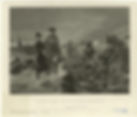This Day in History: Washington's pleas from Valley Forge
- tara
- Feb 18, 2023
- 3 min read
On this day in 1778, George Washington writes several letters from his winter camp at Valley Forge. These letters reflected the many problems that the army was having that winter, but they also showed Washington’s efforts to keep up morale.
His first letter was a circular to the Inhabitants of New Jersey, Pennsylvania, Delaware, Maryland, and Virginia (states close to Valley Forge). His letter is remarkably peppy and optimistic, given his surroundings.

“Friends, Countrymen and Fellow Citizens!” he begins, “After three Campaigns, during which, the brave Subjects of these States have contended, not unsuccessfully, with one of the most powerful Kingdoms upon Earth, we now find ourselves, at least, upon a level with our opponents; and there is the best reason to believe, that efforts, adequate to the abilities of this Country, would enable us speedily to conclude the war, and to secure the invaluable blessings of Peace, Liberty and safety.”
It won’t be long, he concludes, before American forces “strike some decisive blow.”
Then, he asks for help. Do the citizens of these states have any cattle that they can give to the cause? “A bountiful price will be given,” Washington promises. And those giving cattle will “render a most essential service to the illustrious cause of their Country.”
Washington’s letter seems to have been deliberately optimistic so as to encourage the general public. He spoke of the need for provisions, yet he didn’t really tell everyone just how bad things were. And he certainly wasn’t mentioning another rampant problem! Too many of his officers and soldiers wanted to resign. We know this from another letter written on the same day. This second letter was addressed to Brigadier General John Glover.
Glover wanted to resign from the Army. Washington’s letter urged him not to do so. “The spirit of resigning,” Washington wrote, “which is now become almost epidemical is truly painful and alarming.” If these resignations continue, Washington concluded, it “must deeply wound the common cause.”
By the next day, Washington was writing a new letter to Patrick Henry. It was perhaps the most blunt of them all: The Army’s circumstances are “deplorable,” Washington wrote.
“[F]or several days past,” he told Henry, “we have experienced little less than a famine in camp, and have had much cause to dread a general mutiny and dispersion; Our future prospects are, if possible still worse . . . .” He told Henry that he had written the chief executives of neighboring states, but asked Henry to use “the full force of that zeal and vigor, [which] you have manifested upon every other occasion” to help the Army. Without more supplies, Washington feared that “we shall not be able to make another campaign” after winter.
He concludes by asking that his soldiers be paid their bounties as a “reward for past services.” He thought it might encourage men to return promptly after their furloughs.
In many ways, these letters were not so unusual. Washington would write many such letters during the course of the long Revolution. But taken together on this day, they are a snapshot into Washington’s world during that long winter in Valley Forge: He was using every means at his disposal to keep spirits up. Simultaneously, he was facing very real and difficult realities, which had to be solved if the war was to be successful.
Enjoyed this post? More Revolutionary War
stories can be found on my website, HERE.
Primary Sources:
George Washington, Proclamation on Cattle (Feb. 18, 1778)
Letter from George Washington to Brigadier General John Glover (Feb. 18, 1778)
Letter from George Washington to Patrick Henry (Feb. 19, 1778)


